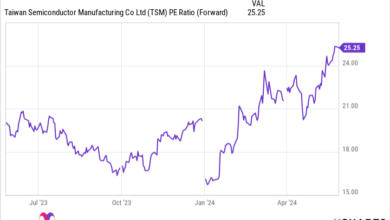Artificial intelligence buzz fades on top company earnings calls

Bloomberg analysis of top company earnings transcripts shows mentions of the term have sharply dropped

Article content
Companies are talking less about “artificial intelligence,” a buzzword central to meteoric gains in tech stocks, raising questions about how much of the technology’s benefits may have already been priced in.
Mentions of the term on calls this past earnings season have sharply dropped compared to the previous four reporting periods, according to a Bloomberg analysis of S&P 500, Nasdaq 100 and Stoxx Europe 600 earnings transcripts. More than 80 per cent of companies have reported numbers so far.
Advertisement 2
Article content
Article content
The falling usage may signal that companies have become more conservative, while some analysts say that it’s still too early to expect a broad AI-driven productivity boom. Stocks geared toward artificial intelligence have continued to lead the equity rally in the United States this year, but this earnings season has shown that investors are harder to impress.
Article content
“I don’t see the big productivity miracle yet from AI,” UBS AG chief strategist Bhanu Baweja said. “When I ask our analysts outside the tech sector if they have significantly changed their cost or revenue projections as a result of AI, there’s a lot of shrugging of shoulders, which says to me that this is evolution, not revolution.”
Bank of America Corp. strategists led by Sebastian Raedler are also among the skeptics. They noted at the start of the season that they saw large gains in productivity already priced in to U.S. stocks, with the equity risk premium — the excess return that can be expected by stock investors over risk-free assets such as U.S. Treasuries — at a 20-year low.
“The market has decided to interpret it not as a cyclical rebound, but as a structural improvement,” he said in a note. “Widespread adoption of technological advances, and the economic benefits they bring, tends to take time and to expect the benefits to be seen as little as two years after the entrance of AI into the general consciousness would be unusually rapid.”
Advertisement 3
Article content
The key question is whether the market is currently at the start of an AI-fuelled productivity surge that could further compress the risk premium, similar to when the 1999-2000 dot-com boom lifted U.S. productivity growth, they said.
Still, the artificial intelligence trade has had an outsize influence on stock markets, with a Goldman Sachs Group Inc. basket of AI beneficiaries surging 22 per cent this year, beating the Philadelphia semiconductor SOX index as well as the Nasdaq 100.
Yet there have been moments of investor alarm. Meta Platforms Inc. triggered a US$400-billion selloff in tech stocks after it failed to convince the market that it can monetize AI, with the results reminding investors how expensive the push into this space is going to be for many large-cap tech companies.
Recommended from Editorial
Chip designer Arm Holdings PLC dropped after giving a lukewarm revenue forecast for the fiscal year, raising concerns of a slowing AI spending spree.
The big test will be Nvidia Corp.’s results due on May 22. For the poster child of the artificial intelligence buzz, expectations are high and rising. The stock, which is up more than 80 per cent this year, has no sell ratings and 61 buy-equivalents, with 12 per cent upside seen to the average price target.
With assistance from Sagarika Jaisinghani.
Article content






